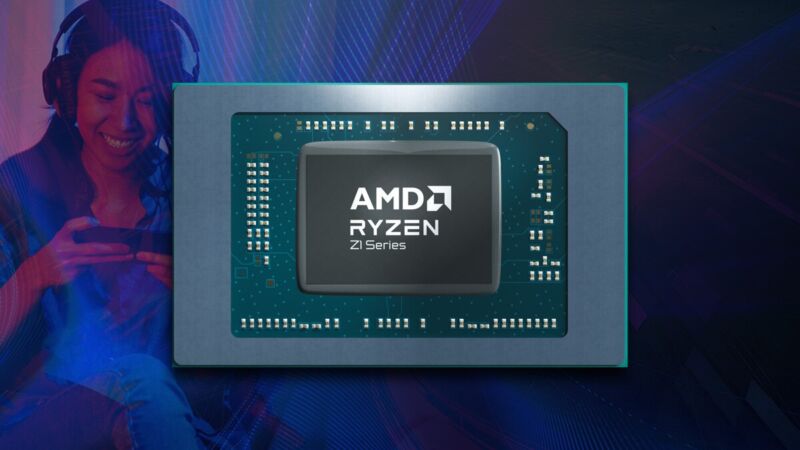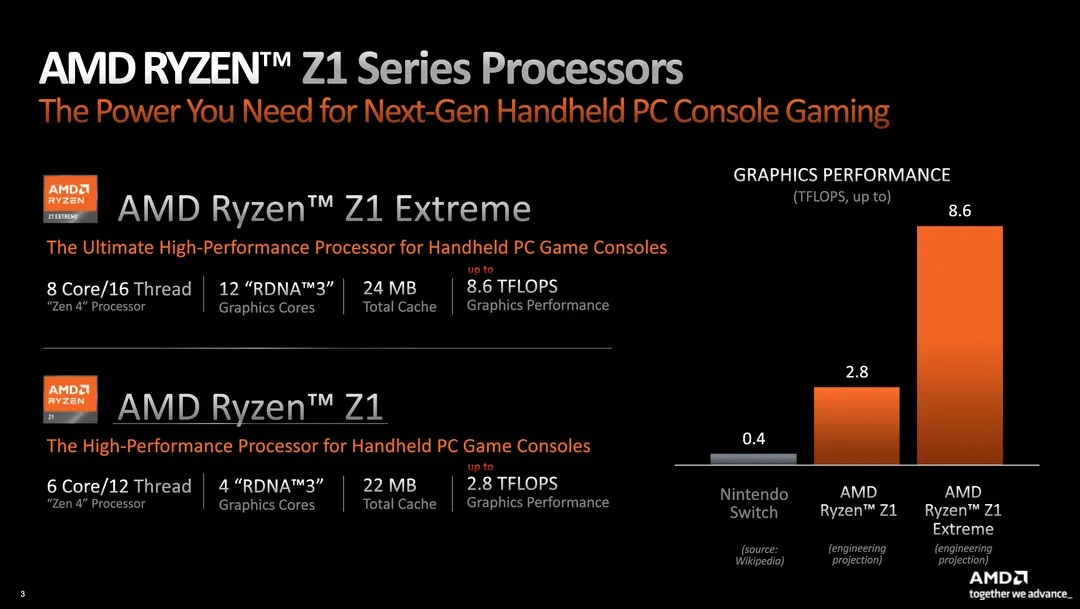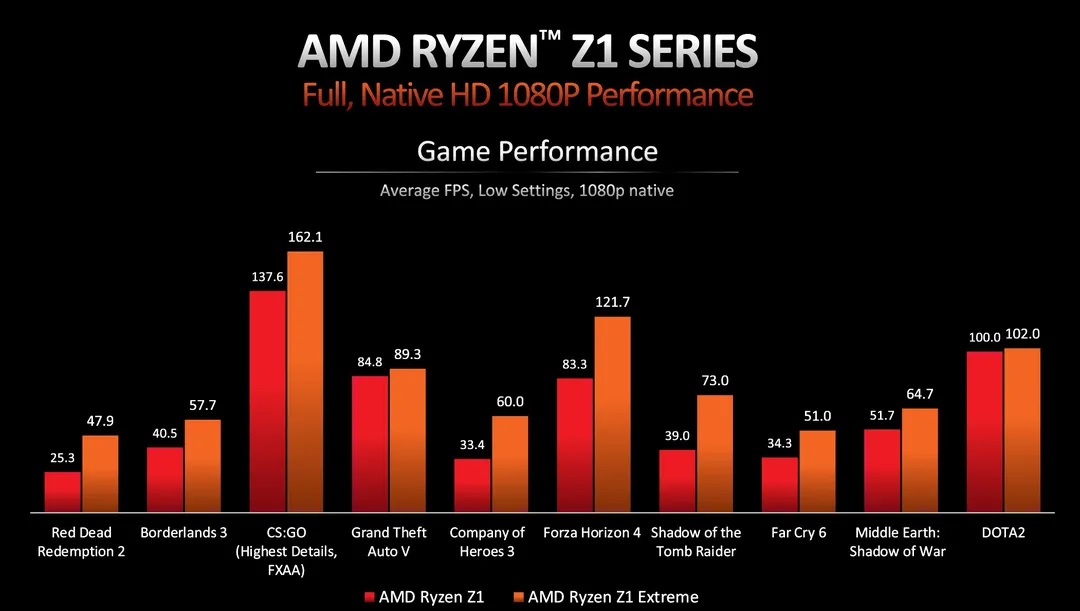AMD’s Ryzen Z1 chips could power a new wave of handheld Steam Deck clones

Nvidia GPUs power the vast majority of gaming PCs, but for more integrated game systems like consoles and handhelds, AMD’s ability to offer tightly integrated Ryzen CPUs and Radeon GPUs has earned it many customers (and lots of revenue). The most notable of these is Valve’s Steam Deck, which combines a Zen 2-based CPU and RDNA 2-based GPU cores to provide passable performance for most games.
Though AMD designed the Steam Deck’s chip exclusively for Valve, today, the company is announcing a pair of Ryzen chips aimed at the growing number of Steam Deck-esque handheld PCs from other companies. The Ryzen Z1 and Z1 Extreme (respectively) combine 6 or 8 Zen 4-based CPU cores with 4 or 12 RDNA 3-based GPU cores, using AMD’s latest architectures and a 4 nm manufacturing process to outrun the Steam Deck’s APU.

AMD says (via The Verge) that the Ryzen Z1 can run games about 55 percent faster than the Steam Deck, reflecting the improved performance and efficiency of the newer architectures and manufacturing process. Interestingly, the Z1 Extreme’s extra GPU cores (12, up from 4 in the Z1) improve gaming performance, but they don’t come anywhere near tripling or even doubling it. The extra hardware helps, but we’re still dealing with integrated GPUs here, attached to a relatively slow pool of DDR5 that they share with the rest of the system rather than dedicated GDDR6 or GDDR6X memory.
The specs of the Z1 chips appear similar to some of AMD’s upcoming Ryzen 7000U processors for ultrabooks and thin-and-light gaming notebooks, but AMD says the Z1 chips use “customized power and voltage curves” and “other differences” that make them better-suited for handheld systems.

The Ryzen Z1 chips will initially power the Asus ROG Ally, an upcoming handheld gaming PC that Asus confusingly decided to announce on April 1. Many companies use April Fools’ Day as an excuse to make “funny” prank announcements, and Asus had to reassure people after the fact that “it’s real” and was “not an April Fool’s [sic] joke.”
AMD says that Asus will announce more about the ROG Ally on May 11. AMD’s performance numbers are all from a ROG Ally prototype running in “Turbo Mode,” which allows the APU to draw up to 30 W of power; modes that cut performance in favor of better battery life may not perform as well.
Though Ryzen Z1-based handhelds should be capable of faster overall performance than the Steam Deck, Valve’s SteamOS may still have a competitive advantage. Other handheld PCs like the AYA Neo have shipped with Windows, which has great game compatibility, but its mouse-and-keyboard-centric user interface isn’t a great fit for small-screened handhelds. Some engineers within Microsoft have tested a “handheld mode” that would solve some of these problems, but we don’t know when (or whether) it will see the light of day.
https://arstechnica.com/?p=1934141